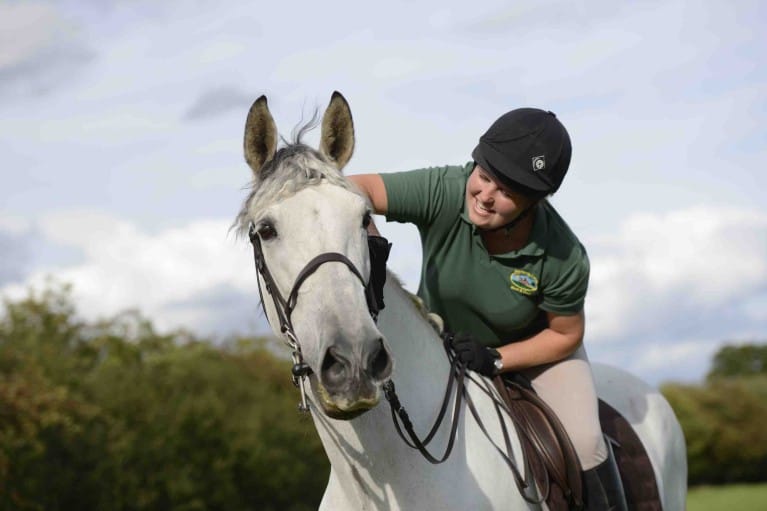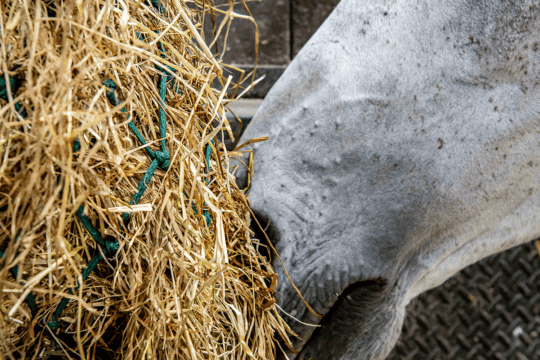Just as humans fall ill, horses can, too. So make sure you can recognise when something’s wrong and are ready to act

Are you able to tell when your horse isn’t feeling his best? Recognising these common ailments early can help you make the right decisions for your horse’s welfare.
Allergic reactions
Horses can have all sorts of allergic reactions, each causing different symptoms. These can develop after coming into contact with the allergen, either through touching, inhaling or eating, or even after an injection.
Common signs
- Swellings are usually irregular in shape and painless to touch, but may be itchy.
- Head may swell, particularly the lips, eye and muzzle area, or lower limbs.
- Trouble breathing and swallowing.
- Swellings may be more prominent after exercise or if he becomes warm.
- In severe cases, signs of colicking may appear and he may collapse.
What to do
- Remove the cause of the allergy.
- Call your vet if your horse is distressed, finding it difficult to breathe and/or swallow, the rash develops due to medication or there is no improvement after a couple of days.
- If the allergy affects his airways, adapt your stable management to eliminate dust, mould and mites that may be inhaled – ie, soaked hay, etc.
Poisoning
Fortunately, poisoning is rare, but it can happen. Generally, horses are most at risk when turned out, due to poisonous plants.
But poison is anything that can cause illness or death if it is eaten, inhaled, injected or absorbed by a horse. Make sure you are familiar with all poisonous plants and check regularly that none are in your paddock or hay.
Common signs
- Symptoms vary but include collapse, colic, dilation of the pupils, depression, diarrhoea, difficulty swallowing and/or breathing, staggering, sweating and sudden death.
- Some poisoning, such as ragwort, does not show signs until it is too late, as it happens over a period of time.
What to do
- If you suspect poisoning, check your field and hay for any poisonous plants.
- Prevent further exposure – horses and people – to the cause.
- Call your vet. If your horse is clearly in pain and distressed, he will need to come out. Otherwise, he can offer you advice over the phone.
Choke
Choke is mostly caused by horses eating their food faster than it can travel down the oesophagus and into the stomach, and so the food becomes impacted.
Excited horses or those with poor teeth, who often swallow hay or feed before it is chewed properly, are particularly at risk.
A horse with choke will become quite distressed, so it can be alarming for owners.
Common signs
- You may see food and saliva around his nostrils.
- He may drool from his mouth.
- You may see a swelling in his neck.
What to do
- Remain calm, many horses will cure themselves quickly.
- Make sure your horse cannot get at any food or water.
- If there’s a lump in his neck, try gently massaging it to loosen it.
- If your horse is very distressed, is taking too long to recover, or you are unsure, call your vet for advice.
Collapsed horse
Horses rarely collapse, but if they are unable to stand, something is wrong. Horses go down for many reasons, and you may even be riding when it occurs.
What to do
- Call your vet. Even if your horse gets up within a couple of minutes, it’s worth having him checked over, in case he’s injured by the fall.
- If the horse is thrashing, NEVER get too close to him.
- If it is safe to do so, slowly approach your horse from behind while talking to him, so he knows you are there.
Check the following:
- Is he breathing?
- Is there a pulse?
- Is he responsive and blinking?
- What colour are his gums?
- Are there any obvious signs of injury?
- Is there something preventing him from getting up?
- Use rugs or coats if you’re hacking to keep him warm until a vet arrives.
Colic
This describes abdominal pain, although more specifically refers to pain in the gastro-intestinal tract. Causes include a sudden change in diet, recent worming, worm infestation and food obstructions.
Common signs
- Restlessness, rolling, kicking out, pawing, repeatedly looking at his flanks.
- Sweating and rapid breathing.
- Alternatively, he may be unusually quiet, and/or lying down – often flat out.
- Straining to pass droppings or adopting the position to urinate, but not doing anything.
- Loss of interest in food and water.
- Change in colour of the gums.
- Weak pulse over 70 beats per minute.
What to do
- Call your vet immediately.
- Quietly walking your horse can help encourage normal gut movement – but do not exhaust him.
- If your horse is lying down, don’t force him to get up, as he is in the most comfortable position.
- Allow access to water, but not food.
Azoturia (or Tying up)
This is a cramp-like condition that affects the muscles.
Common signs
- Reluctance to move, appears to have cramp.
- Anxiety and becoming distressed.
- Sweating and small muscle tremors.
- Passing dark, discoloured urine.
- If severe, he’ll be unable to stand.
What to do
- Call the vet.
- Don’t force the horse to move; if you’re out hacking, organise transport home.
- Put rugs – or coats and jumpers if you are riding – over your horse to keep him warm, particularly if it is cold or raining.
Shock
A serious condition that arises as a result of a frightened horse suffering from pain, infection, trauma, blood loss and even dehydration. So it’s important to be aware of this in any emergency.
Common signs
- Shaking and/or shivering.
- A weak pulse.
- Unusual, rapid and shallow breathing.
- The colour of the gums and around the eyes may be pale or white.
What to do
- Call your vet immediately.
- Use rugs to keep your horse warm.
- Make fresh, warm water available.
- Don’t move him, in case he falls.















